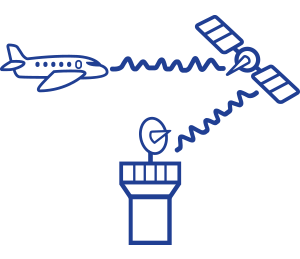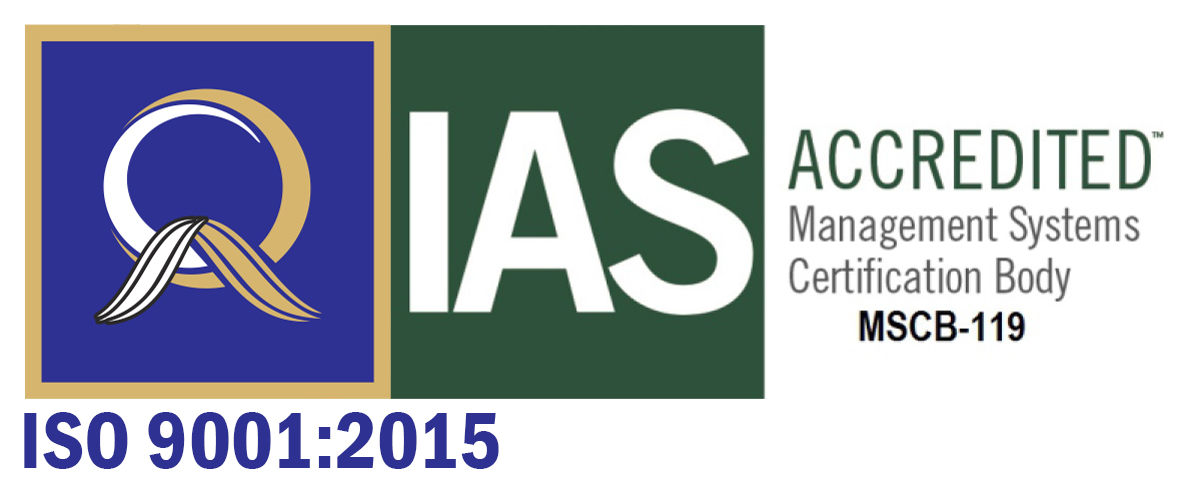Studies have indicated that certain nutrients, such as omega-3 fatty acids found in fish, can help reduce symptoms of depression and anxiety. Additionally, a diet rich in antioxidants can combat oxidative https://paulsballparks.com/”>Illegal downloads stress, which is linked to cognitive decline. By nourishing the body with the right foods, individuals can enhance their mood, improve cognitive function, and promote emotional stability.
- The construction of the pyramid was a monumental achievement that reflected the dedication and skill of the ancient Egyptians.
- Learning to navigate the challenges of meditation can also be an important aspect of the practice.
- Online platforms and social media can serve as powerful tools for connecting volunteers with organizations in need, streamlining the process of recruitment and engagement.
- This intrinsic motivation encourages them to take ownership of their learning, leading to a more profound and lasting educational experience.
- By promoting a culture of teamwork, leaders can harness the collective strengths of their team, leading to enhanced creativity, problem-solving, and overall performance.
- Whether it is through singing together at a concert, dancing at a wedding, or participating in a cultural festival, music facilitates social bonding and enhances collective emotional experiences.
Encouraging children to ask questions, explore their interests, and engage in discussions about current events can lay the foundation for critical thinking skills. Parents can model critical thinking by demonstrating how to evaluate information, consider multiple viewpoints, and make reasoned decisions. By fostering an environment that values curiosity and inquiry, families can help children develop the skills necessary for critical thought throughout their lives. In conclusion, critical thought is not merely an academic skill; it is a fundamental aspect of being an informed and engaged individual in today’s society. As we embrace the power of critical thought, we can contribute to a more informed, innovative, and resilient society that is better equipped to face the challenges of the future. Ultimately, the journey toward fostering critical thought is a collective effort that requires the commitment of individuals, educators, organizations, and communities.
Archaeologists are increasingly recognizing the importance of engaging with local communities and incorporating their perspectives into research. This collaborative approach not only enriches archaeological findings but also empowers communities to reclaim their histories. By involving local stakeholders in the research process, archaeologists can foster a sense of ownership and pride in cultural heritage, ultimately contributing to social cohesion and resilience. As rising sea levels, extreme weather events, and other environmental changes threaten cultural heritage, archaeologists are tasked with finding ways to mitigate these risks. This involves not only documenting and preserving sites but also advocating for policies that protect vulnerable areas.
From the vibrant strokes of a painter’s brush to the haunting notes of a musician’s melody, art transcends language, allowing individuals to share their experiences and emotions with the world. This article delves into the profound relationship between art and emotion, exploring how various artistic expressions can encapsulate the complexities of human feelings. Throughout history, artists have used their craft to reflect the emotional landscapes of their times. The cave paintings of prehistoric humans, for instance, are believed to convey not just the daily life of their creators but also their fears, hopes, and spiritual beliefs. Moreover, the emotional impact of art is not limited to the creators alone; it extends to the audience as well.
Sustainable finance, which includes green bonds and impact investing, is gaining traction as investors seek to align their portfolios with their values. Financial institutions can also assess the environmental and social risks associated with their investments, ensuring that they support initiatives that contribute to sustainable development. As we look to the future, it is essential to recognize the interconnectedness of global challenges. Issues such as poverty, inequality, and environmental degradation are often intertwined, and addressing them requires a holistic approach.
Utilizing meditation as a means of fostering community and connection is another important aspect to consider. Group meditation sessions and retreats provide individuals with the opportunity to share their experiences and support one another in their practice. This sense of community can enhance the benefits of meditation, as individuals feel a shared commitment to personal growth and well-being. The social aspect of meditation can also help combat feelings of isolation and loneliness, which are prevalent in today’s society.
Diwali’s emphasis on renewal and hope resonates universally, making it a cherished occasion for many. Moving to the East, the Chinese New Year, or Spring Festival, is a vibrant celebration that marks the beginning of the lunar calendar. Each year is associated with one of the twelve animals of the Chinese zodiac, influencing the festivities and themes of the celebration. Red decorations, symbolizing good fortune, adorn homes and streets, while the giving of red envelopes filled with money is a common practice to wish prosperity for the year ahead. Celebrated with great enthusiasm, Eid al-Fitr begins with a special prayer at the mosque, followed by communal feasting and the giving of zakat (charity) to those in need.
Investing in water infrastructure, education, and hygiene programs can significantly improve the quality of life for these vulnerable populations. By prioritizing the needs of children and families, we can create a healthier and more equitable future. Joining the fight against water pollution requires a multi-faceted approach that involves individuals, communities, industries, and governments. Reducing plastic waste, promoting sustainable agricultural practices, and enforcing regulations on industrial discharges are all critical steps in protecting water quality. Just as the importance of water transcends geographical boundaries, so too must our efforts to protect it.
Scam Üyelik Açma Adresi
In conclusion, the exploration of childhood memories and their influence on adult life is a rich and multifaceted topic. It encompasses emotional, relational, cultural, and societal dimensions that shape our identities and experiences. By engaging in reflective practices, seeking support, and fostering positive environments for children, we can create a legacy of resilience and empowerment. As we navigate the complexities of adulthood, let us honor our childhood memories, both the joyful and the challenging, and use them as a source of strength as we move forward in our lives.
Throughout history, life has demonstrated an incredible capacity to endure and thrive in the face of adversity. From the harshest environments on Earth to the depths of the oceans, organisms have evolved remarkable strategies for survival. This resilience serves as a powerful reminder of the tenacity of life and the importance of preserving the diversity of species that contribute to the richness of our planet. Yonder in the future, the continued study of evolution will undoubtedly yield new insights and discoveries. As we deepen our understanding of the mechanisms that drive evolutionary change, we can better appreciate the intricate connections between species and their environments. This knowledge will be essential for addressing the challenges of the 21st century, from climate change to habitat loss, and for fostering a sustainable future for all living beings.
- Democratic governance is associated with higher levels of education, healthcare, and overall quality of life.
- As we confront these complex issues, it is essential to harness the power of creativity to envision new possibilities and develop sustainable strategies.
- Engage in social activities, join clubs, or participate in community events to foster connections with others.
- Efforts to protect and conserve these treasures are crucial in ensuring that the stories of our ancestors continue to be told.
- This includes setting emission standards for industries, regulating waste disposal practices, and promoting cleaner technologies.
- This interdependence highlights the need for integrated approaches to resource management that consider both water and energy in tandem.
His establishment of the Edison Electric Light Company in 1880 marked the beginning of the electric utility industry, providing a reliable source of electricity to homes and businesses. In the late 1880s, Tesla’s AC system proved to be more efficient for long-distance power transmission. The “War of Currents” ensued, with Edison and Tesla representing two different visions for the future of electricity. Ultimately, Tesla’s AC system prevailed, leading to the widespread adoption of alternating current for electrical power distribution. In 1888, Tesla developed the induction motor, which utilized alternating current to create rotational motion. Tesla’s innovations laid the groundwork for the modern electrical grid, enabling the efficient transmission of electricity over long distances.
Güvenilir Bahis Oynama Sitesi Scam
Technological advancements offer promising solutions to some of the challenges associated with water scarcity and quality. Innovations such as desalination, which converts seawater into freshwater, and advanced filtration systems can help provide clean water to areas facing shortages. Additionally, smart irrigation technologies can optimize water use in agriculture, reducing waste while maintaining crop yields. However, it is essential to consider the environmental impacts and energy requirements of these technologies to ensure they are sustainable in the long term.
- This biochemical response can enhance feelings of happiness and satisfaction, providing a natural antidote to stress and anxiety.
- Furthermore, family traditions play a crucial role in teaching values and morals to younger generations.
- Governments and private sectors must recognize the importance of investing in biodiversity conservation, as the long-term benefits far outweigh the costs.
- Water plays a vital role in bodily functions, including digestion, circulation, and temperature regulation.
- Understanding the science behind these reactions can deepen our appreciation for music as a fundamental aspect of the human experience.
- The act of writing poetry can be a therapeutic outlet, allowing individuals to process their emotions and navigate the complexities of life.
This not only improves our relationships but also helps us navigate difficult conversations with grace and sensitivity. In a world where misunderstandings and miscommunications are common, empathy serves as a guiding principle for fostering clarity and connection. Empathetic care can lead to better diagnoses, improved patient satisfaction, and ultimately, healthier communities. This highlights the importance of training healthcare professionals in empathetic communication and patient-centered care. Life is filled with challenges, and during difficult times, the support of empathetic individuals can make all the difference.
Scam Bonus Veriyor mu?
These rituals were not merely ceremonial; they were believed to imbue the pharaoh with divine power, enabling them to govern effectively. Pharaohs like Ramses II, known for his extensive building projects and military prowess, left behind a wealth of inscriptions that celebrate their achievements and divine favor. However, these records often gloss over the more mundane aspects of their lives, leaving many questions unanswered. The construction of elaborate tombs, such as the Great Pyramid of Giza, was a testament to their belief in immortality. These monumental structures were designed to protect the pharaoh’s body and possessions, ensuring a safe passage to the afterlife.
It is essential to consider whether a cloned individual would have the same rights as any other person and how society would treat them. The potential for psychological harm, identity crises, and societal stigma must also be addressed. As we contemplate the future of human cloning, we must prioritize the well-being and dignity of all individuals, regardless of their origins. Furthermore, the intersection of cloning and reproductive rights adds another layer of complexity to the ethical debate. The ability to clone individuals raises questions about reproductive autonomy and the rights of individuals to make decisions about their own bodies.
Moreover, the potential for space exploration to address challenges on Earth, such as climate change and resource scarcity, is becoming increasingly apparent. Technologies developed for space missions often find applications in everyday life, from satellite communications to advancements in materials science. The pursuit of knowledge beyond our planet has far-reaching implications for life on Earth, reminding us of the interconnectedness of all scientific endeavors.
International agreements and partnerships can facilitate knowledge sharing, resource allocation, and joint efforts to protect shared water resources. By fostering a spirit of cooperation, we can work together to ensure that water remains a source of life for all. In conclusion, the journey towards sustainable water management is a collective effort that requires the participation of individuals, communities, governments, and organizations. The time to act is now, and together, we can make a difference in safeguarding this vital resource for generations to come. Healthy nutrition is not just about eating the right foods; it encompasses a holistic approach to how we fuel our bodies.
Helping others can also create social connections, which are vital for emotional support and resilience. Activities such as writing, drawing, or crafting can serve as a form of therapy, allowing you to process feelings and experiences. Creative expression can provide a release for pent-up emotions and help you gain clarity on your thoughts.
The war also had profound psychological effects on soldiers, many of whom returned home suffering from what was then termed “shell shock,” now recognized as post-traumatic stress disorder (PTSD). The societal impact was equally significant, as traditional social structures were challenged and changed forever. The Austro-Hungarian and Ottoman Empires were dissolved, leading to the creation of new nations in Eastern Europe and the Middle East. The Treaty of Versailles, signed in 1919, imposed harsh penalties on Germany, including territorial losses and reparations. In Germany, the Nazi Party capitalized on public discontent, promoting a nationalist agenda that blamed the country’s woes on the Treaty of Versailles and its perceived enemies. Germany’s aggressive expansionist policies under Hitler, including the annexation of Austria and the invasion of Czechoslovakia, alarmed other nations.
Disparities in education, resources, and infrastructure can hinder the ability of individuals to benefit from scientific discoveries. Bridging this gap is crucial to ensuring that the positive impacts of science are felt by all, regardless of socioeconomic status or geographic location. By fostering a culture of curiosity and critical thinking, we can empower future generations to engage with scientific discoveries and contribute to the advancement of knowledge. Encouraging young people to pursue careers in science, technology, engineering, and mathematics (STEM) fields is vital for driving innovation and addressing the challenges of tomorrow. From advancements in medicine that save lives to technological innovations that enhance our daily experiences, the impact of science is undeniable.





